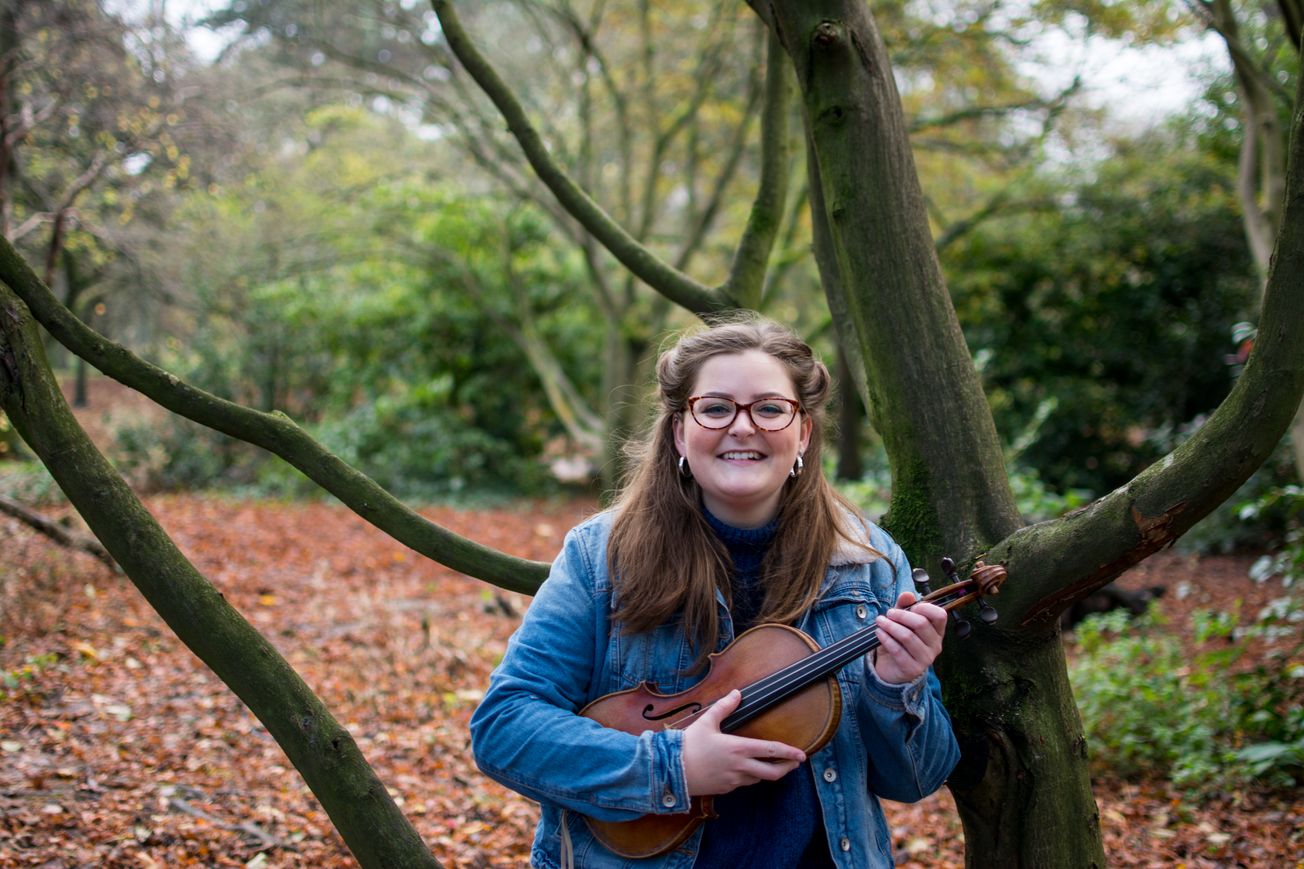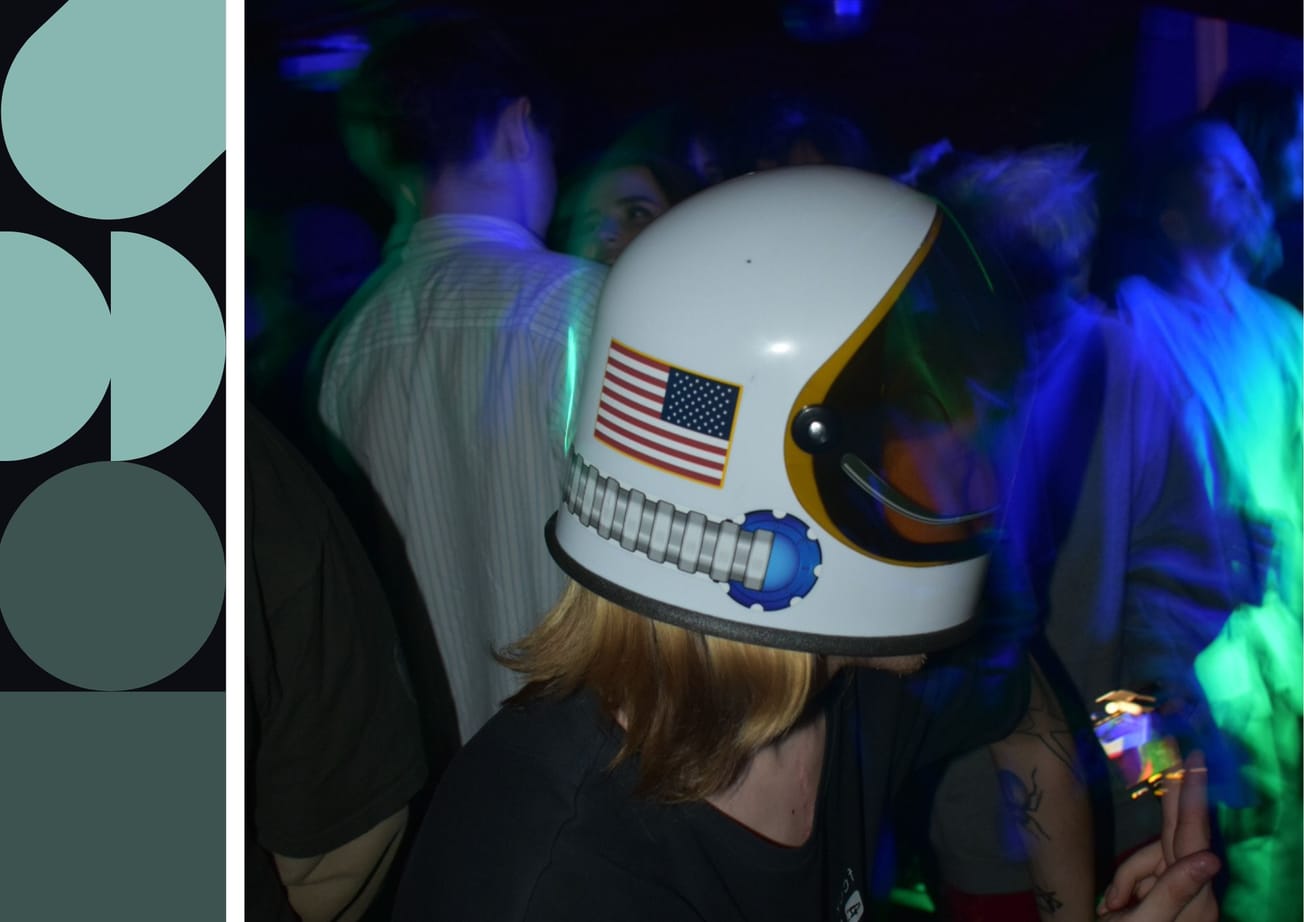By Lauren Paddison, Music Subeditor
The day after the first meeting with Bristol music students launching Thinking Music, the initiative’s founder speaks with Epigram about her new community music project and the steps she has taken to get there.
Completing her undergraduate BA in music at Bristol from 2012 – 2015, Poppleton has gone on to study at both the Royal Welsh College of Music & Drama (RWCMD), the Royal Academy of Music (RAM), and the Open Academy as a professional violinist. It is so often the case with arts graduates that their work and study follows a non-linear path, often driven by different projects and opportunities. Poppleton fully adopts this path, subscribing to a portfolio career made up of ‘a tapestry of rich things’ in the form of opportunities that have been sought and taken up.
Reflecting on her time at Bristol which was filled with a lot of music making and performing, Poppleton remarks on the things that she cherished most not so much as the ‘big events’ but the small interactions with friends and the general buzz of university life which is filled with so many life-lasting moments: ‘It’s the laughing in the theatre bar, sneaking off to Waitrose for cookies before a lecture, dancing in the Brass Pig, and the community element of that.’
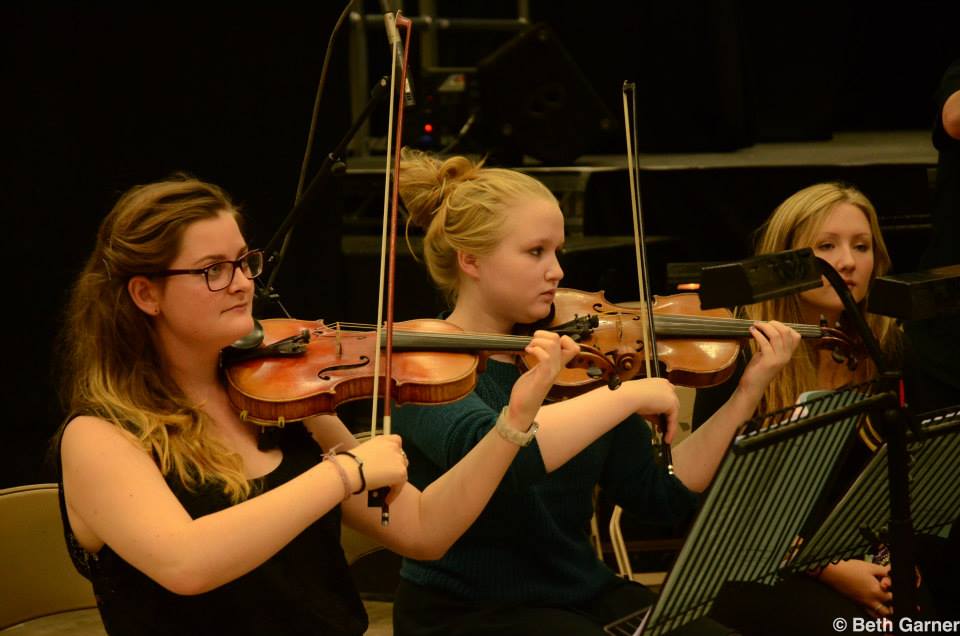
Vibrancy and opportunity for music ultimately drew Poppleton to Bristol – ‘for me it was really important that it was a university in a city. I wanted to see other people and be interacting with the community and not be shut off in some private student village. I think it was the fact that it felt really open and considerate.’
With music societies playing such a vital role in the social and musical lives of music students past and present, Poppleton relays her love of lecturer run ensembles and student led music groups. Being part of and performing with the university Symphony Orchestra and leading a Mahler Symphony in her final year, along with putting on a production of Dido and Aneas with Bops are among her fondest memories. Other highlights include music society tours to Budapest and Kraków, and ‘the balls as well, we should mention the balls!’
The challenges of graduating into the arts sector were undertaken by Poppleton herself five years ago. Propelled by her study at Bristol, Poppleton said of her next steps ‘I definitely didn’t know what I wanted to do after, but the great thing about the Bristol course is I was trying loads of different things’, whilst also affirming ‘I knew I wasn’t done with music yet.’ Following constructive advice from her parents of ‘Why don’t you just try?’ Poppleton applied for postgraduate study and was accepted to complete a two-year performance diploma at the Royal Welsh College of Music & Drama. The step was a big one, and Poppleton recognises ‘it’s quite a daunting moment leaving university, and people get quite anxious about it whereas I thought, “I’ll just see what happens”.’
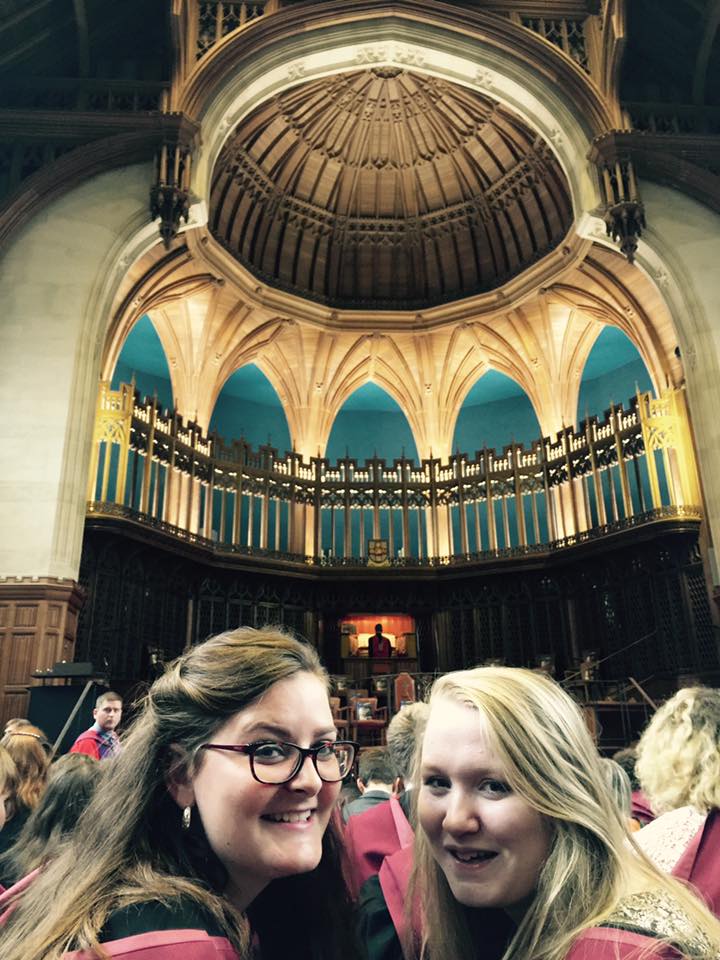
When making big decisions Poppleton reinforces that it is important to check in with yourself about how you feel about opportunities that arise. She reflects on being a part of Marnaves Summer Baroque course taken just before starting at RWCMD which went on to shape a passion that lasts to this day: ‘I loved it and I loved the people there, so that was my feeling – I followed that.’ Subsequent baroque violin courses at Dartington International Summer School strengthened her love of the craft and belief in following feeling – ‘I reacted very instinctively to every opportunity, and just kept following them.’
The baroque violin led Poppleton to study a one-year intensive Master of Arts in Historical Performance at the Royal Academy of Music. Here, she was first introduced to community music which led to her involvement in the Belsize Baroque orchestra – one of the leading amateur baroque orchestras comprising of students and top amateur performers, as well as Hold the Drama, a project which delivers immersive shows for children that use high-quality live music to explore issues around mental health. She says of these ventures - ‘the big things in my life are overlapping connections. It has always been about the people, and the fit, and where I can feel I can flourish.’
After graduating from RAM, Poppleton also started instrumental teaching at Wimbledon High School. She reflects on this balance – ‘I have a mixture of very stable things and very irregular, exotic things. Teaching is a piece of guaranteed income which also gives me routine and stability which makes me feel safe – I know I’ve got the same colleagues; I know the children and groups that I teach really well. There’s a bit of safety – I’ve built that rapport and I’ve got that trust. And then I have the completely new things that fill my diary as well – I’ve really learnt, both before the pandemic and now, that having something that’s constant is really important to then help me dare to take on new things.’
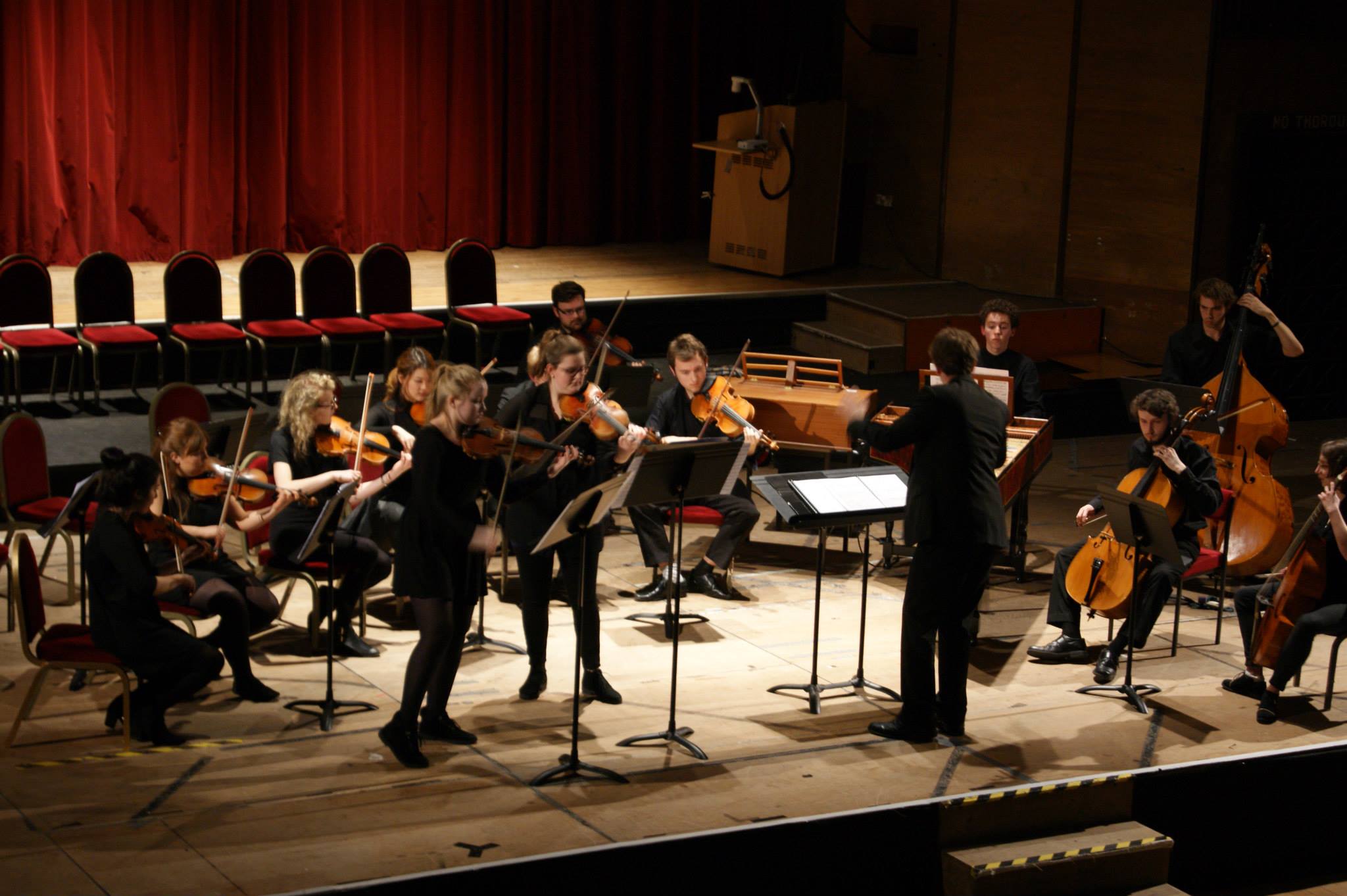
The different parts of a creative tapestry career are important not only for stability, but for staying energised about each component. Poppleton assures that ‘if I did any one part of my career full time, I wouldn’t be as good at it as if I have a mixture. I’m sure of that. But, doing things like creative music makes me feel like I'm using and stretching different parts of my personality, and my musical identity as well.’
Despite performing at professionally high levels throughout her degree and beyond, Poppleton reflects that her acclaim as a performer grew from music in her life early on – ‘it was always just about making music with my friends. I was very lucky – I went through mainstream education and the area that I lived in had a music service that was supported by the county council at the time, which was really flying.’ With such disparity in arts funding in schools and the opportunity that that goes on to affect in students, Poppleton realises her fortune with opportunity afforded to her in her schooling – ‘in my A level group, there was 18 of us and 15 of us went into the arts, and we didn’t think anything of it.’
‘Definitely yes’, was the answer to whether Poppleton felt supported in music in childhood, ‘but not in any way advertently.’ Her mum being a secondary school music teacher, Poppleton was not short of musical influence, and also prominent in her memory is the support from her local music service, Salisbury Area Young Musicians. 'I went from picking a violin up in my local music service every Saturday to leading symphony orchestras’ is a revelation that powerfully sums up how profound community music can be in the lives of its attendees.
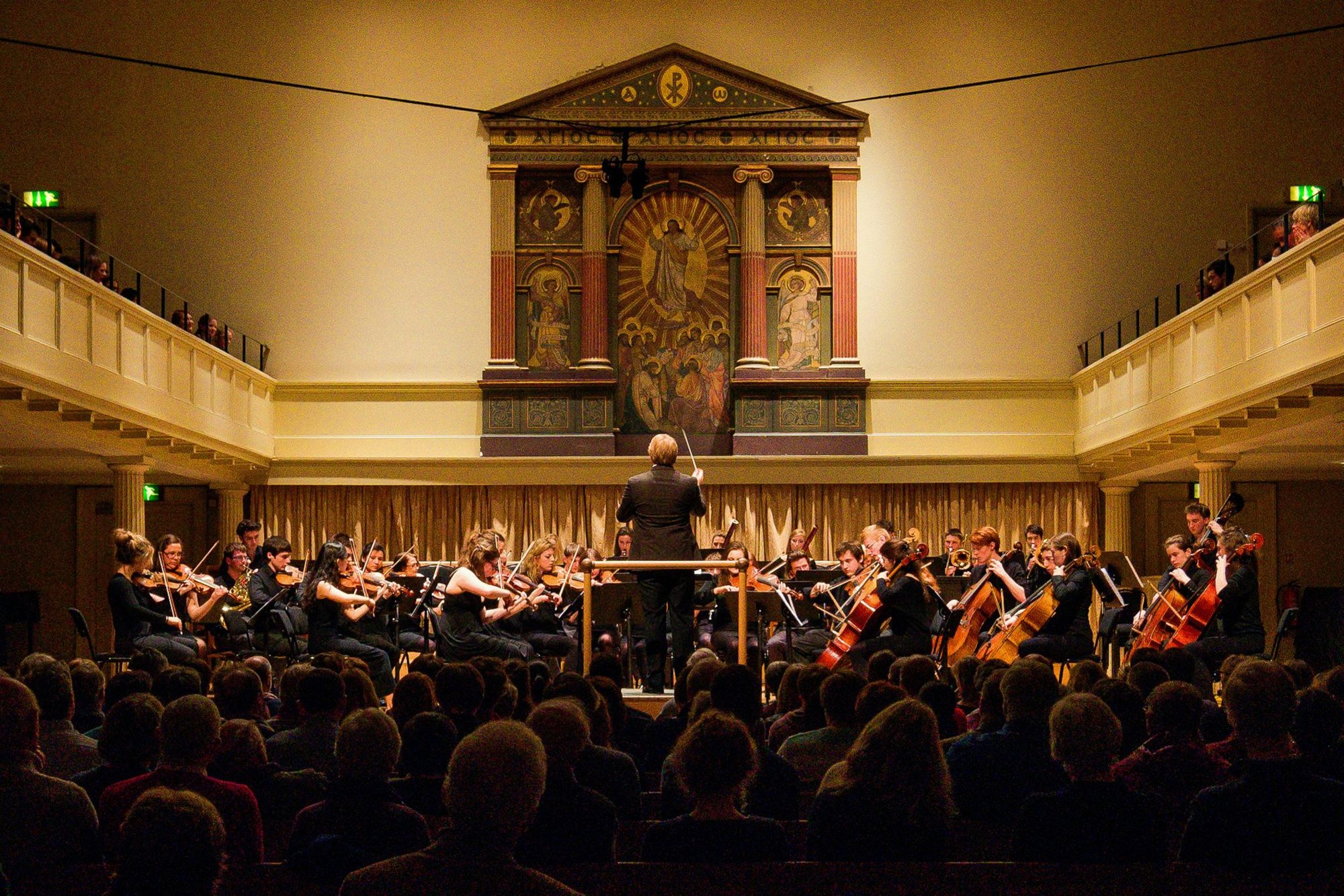
‘I was very supported but not in a way that makes me self-conscious about it or that I particularly felt it because it was there the whole time. The same group of friends that I made when I was tiny, I played music with until we all left for university. It was so supported; I didn’t really know it was there.’
When asked about stepping into a career in the arts, Poppleton finds an overarching theme: ‘people love each other, and they want to push each other along. So, find the people who want to support you, and who care about you and your career. Because we do something that’s vocational, people are invested in you. That’s why it has to be genuine relationships for me.’ In pursuit of this genuineness that has carried her thus far, Poppleton reflects that ‘the power of saying “thank you, I really liked what you did” is maybe what’s kept me moving forward.’
Poppleton remembers fondly trading concert stewarding duties for instrumental lessons with one of her teachers and explains that ‘there are exchanges that aren’t necessarily monetary.’ She reaffirms that ‘time and genuineness’ go the furthest in cultivating working relationships and further advises ‘just be brave: send the emails, and then send the emails again.’
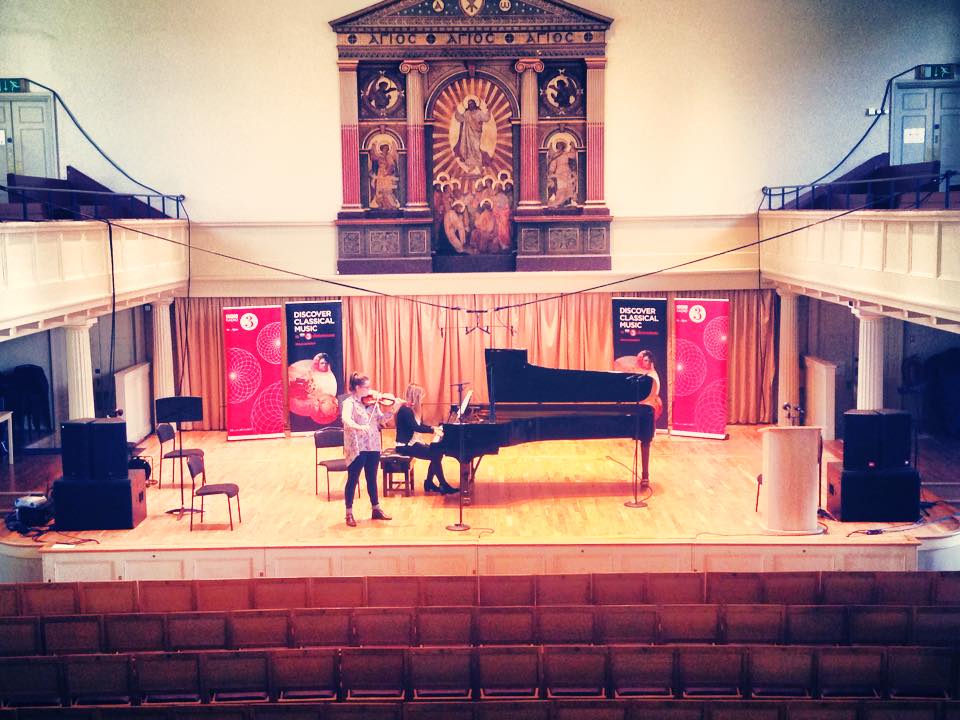
Poppleton’s proudest venture doesn’t manifest itself in one concert, one project, one degree or one job – ‘I’m most proud of these amazing relationships that I’ve fostered and the fact that I get to work with these amazing people and then call them friends as well.’ Her appreciation goes a long way and is testament to the ‘environment of support, honesty, openness, creativeness, collaborative-ness and wanting the best for each other.’
For the first time Poppleton addresses the pandemic and reflects on the types of performing she might have been involved in if not for the last 12 months of varying levels of national lockdown. The tone is however immediately positive as she addresses the ‘void’ of time that the pandemic has brought to so many working people who have been forced to stay at home. Poppleton reflects that ‘in a lot of ways the pandemic has been the void; I had this void of time.’ Stress falls on her final remark about the void and about ‘having things you know will help.’
It is hard not to feel warmed but the infectious optimism of Poppleton’s further advice on dealing with the struggles of lockdown – ‘if you are facing the void, set yourself useful challenges; courses you’ve seen, books you’ve always wanted to read, people you’ve always wanted to get in touch with.’ Turning every challenge into an opportunity is something we have all had to learn throughout the pandemic, and Poppleton is testament to the success of this ethos.
‘When you’re locking eyes with someone and you’re trying to work out what music is going to make them come alive. That is, for me, ground-breaking.’
Community music has become a key component in Poppleton’s musical identity, particularly taking root during her Open Academy Fellowship which saw her make connections with organisations such as Spitalfields Music, Wigmore Learning and Royal London Hospital school. Poppleton takes the time to return to some of those significant moments when her music has impacted the lives of others – ‘when you’re locking eyes with someone and you’re trying to work out what music is going to make them come alive. That is, for me, ground-breaking. The fact that I’ve gone into a hospital and been a baby’s first ever music, or you play to a child who hasn’t ever left hospital, and won’t ever leave hospital, and you sit next to the parent and the child and you actually try and make the music to make their eyes move more or make their hand twitch. And you literally sit there and improvise until it happens – that’s just something else.’
Recently, Poppleton has been working with the Orchestra of the Age of Enlightenment on their Enlightenment Scheme, working to make educational videos for their new platform, and similarly undertaking work with Brighton Early Music Festival, devising, performing and presenting their online education videos with friend, colleague and lutenist, Sergio Bucheli.
Stemming from this comes a new community music initiative headed by Poppleton, Thinking Music. In the planning since June 2020, Thinking Music sees Bristol University’s Music Department pair with a primary school in Wiltshire to boost music as a creative learning tool as well as an expressive outlet. The project seeks to introduce new ways in which music can supplement core curriculum whilst also filling a gap left in the little arts funding allocated to the rural primary school.

After leaving her hometown in pursuit of music in her teens and going onto study at top institutions around the country, Poppleton makes a stark realisation – ‘something I had noticed from years before is that I’d come back to this local area, Wiltshire, and the music education varied so significantly, and so unjustly, and so randomly, that it hurt me, to then go back to London and see the difference for the average child – it was absolutely and completely incomparable. That hurt a lot, and it was something I was carrying.’
Working in collaboration with Ingram Hill Foundation and University of Bristol music students, the mantra was established; ‘in the middle of this pandemic, we are going to do something that will be brilliant. I can’t wait to see what happens.’ The project will culminate in the partner primary school visiting the university in the summer. Poppleton assures ‘the results are very promising, and the initial energy is really exciting.’ Acting on the imbalance and injustice in access to music that has for too long been inevitably accepted as necessary, the aspiration for years to come grows from ‘building a relationship and a legacy and affecting the system and making change.
‘We are enjoying formulating ambitious plans building on this energy to grow Thinking Music in the years to come.’
Composition subscription services: a worrying trend for young composers
Something to look forward to: The summer 2021 Bristol events guide
Featured Image: Courtesy of Alice Poppleton
Feeling inspired?

